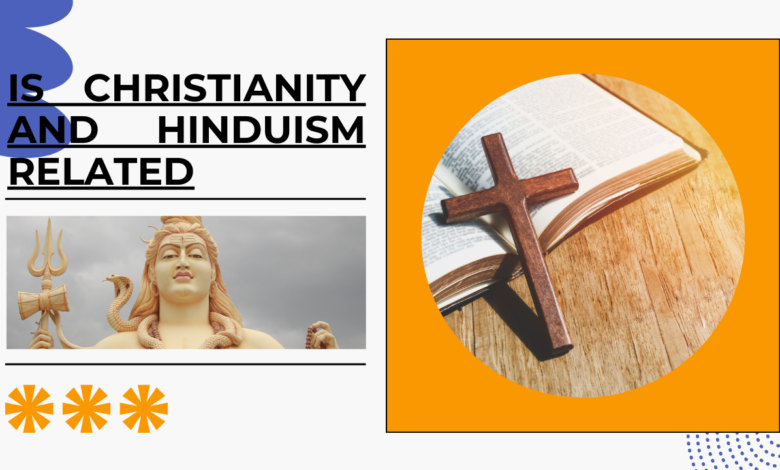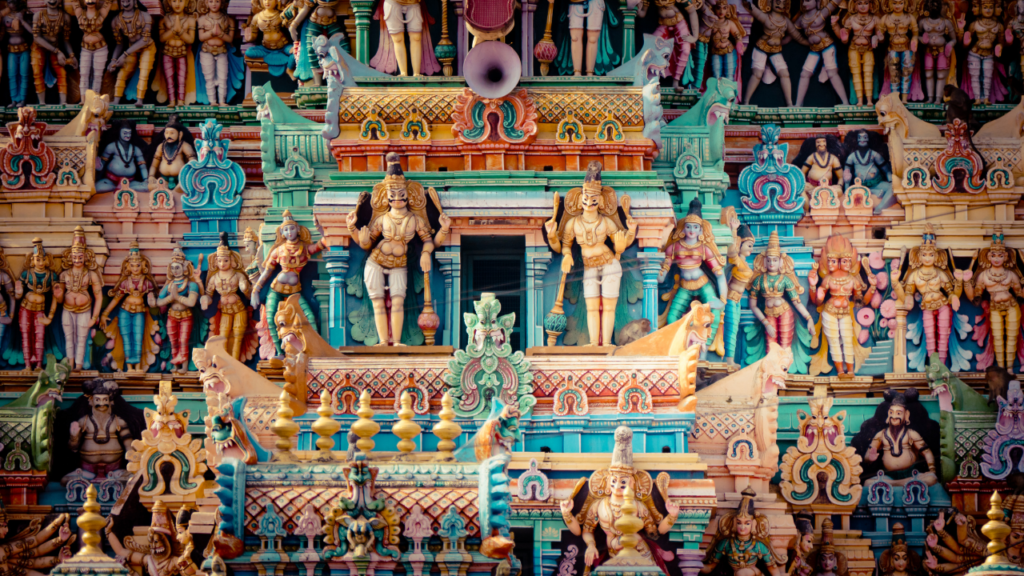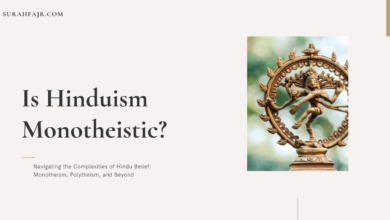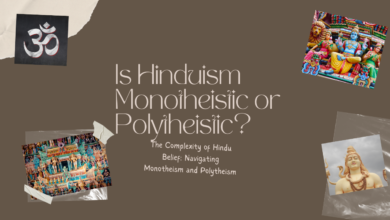Is Christianity and Hinduism related?
Exploring the Interplay Between Christianity and Hinduism

Is Christianity and Hinduism related?
While they have distinct theological foundations, Christianity and Hinduism share some historical interactions and intriguing parallels.

Introduction
Christianity and Hinduism are two of the world’s oldest and most influential religions. While they may seem worlds apart in terms of theology, culture, and practice, a closer examination reveals some surprising connections and contrasts. In this article, we will explore the historical, philosophical, and cultural aspects that link and differentiate these two faiths, shedding light on the fascinating interplay between Christianity and Hinduism.
Historical Context
To understand the relationship between Christianity and Hinduism, we must consider their historical contexts. Christianity emerged in the Middle East during the 1st century CE, primarily as an offshoot of Judaism, with Jesus of Nazareth as its central figure. Hinduism, on the other hand, is one of the world’s oldest religions, with roots extending back over three millennia on the Indian subcontinent. The differences in their origins are undeniable, but there have been historical encounters and interactions between the two.
Trade and cultural exchanges along the Silk Road allowed for some degree of cross-cultural pollination. In particular, Christian missionaries and traders journeyed to India and the surrounding regions, where they encountered Hinduism. These interactions had the potential to shape the religious landscape, leading to exchanges of ideas and practices.
Also check.
- Who is the God in Islam?
- Who is Jesus?
- What is Islamism?
- What’s inside the Kaaba?
- Why don’t Muslims eat pork?
Theological Parallels and Differences
At their core, Christianity and Hinduism have contrasting theological beliefs. Christianity is monotheistic, centered around the belief in one God, while Hinduism is often described as henotheistic, where various deities are worshipped within a broader framework of divine unity. However, there are some intriguing theological parallels.
- Incarnations: Christianity has the concept of the Incarnation, the belief that God took on human form in Jesus Christ. In Hinduism, there is a similar concept of avatars, where deities like Vishnu incarnate in various forms to restore balance in the universe.
- Moral Values: Both religions emphasize moral values like compassion, kindness, and love. Christianity promotes the Golden Rule, “Do unto others as you would have them do unto you,” while Hinduism teaches the principle of dharma, which includes ethical and moral duties.
- Karma and Sin: Although the terminology differs, both religions acknowledge the consequences of one’s actions. Christianity speaks of sin and salvation, while Hinduism uses the concept of karma and reincarnation.
Cultural Overlaps
The interplay between Christianity and Hinduism has also manifested in cultural aspects:
- Art and Iconography: Both religions boast a rich tradition of art and iconography. Hinduism is famous for its intricate temple carvings and a diverse pantheon of deities, while Christianity features iconic representations of Jesus, Mary, and various saints.
- Pilgrimages: Pilgrimages are essential in both religions. Christians journey to holy sites like Jerusalem, Rome, or Santiago de Compostela, while Hindus undertake pilgrimages to places such as Varanasi, Tirupati, or Kedarnath.
- Rituals and Worship: Rituals and worship practices in Hinduism, such as the lighting of lamps, offering of incense, and recitation of prayers, bear similarities to Christian rituals like lighting candles, offering prayers, and partaking in the Eucharist.
Conclusion
Christianity and Hinduism are distinct in their theological foundations and practices. However, the historical encounters between these two religious traditions have led to intriguing parallels in certain aspects, fostering a unique cultural and spiritual dialogue. While the core beliefs remain divergent, the shared values of love, compassion, and moral principles provide common ground for mutual understanding and respect.
The relationship between Christianity and Hinduism is a testament to the complex and interconnected nature of human spirituality, reflecting the capacity of different belief systems to influence one another while maintaining their individuality. These connections and contrasts serve as a reminder of the diverse tapestry of beliefs that enrich our world.

FAQs
Are Christianity and Hinduism related in any way?
While they have distinct theological foundations, Christianity and Hinduism share some historical interactions and intriguing parallels.
What are the key theological differences between Christianity and Hinduism?
The primary difference is that Christianity is monotheistic, centered around one God, whereas Hinduism is henotheistic, allowing for the worship of multiple deities within a broader divine framework.
Is there any common ground between Christianity and Hinduism in terms of beliefs?
Both religions emphasize moral values like compassion, kindness, and love. They also share the concept of karma and the idea that one’s actions have consequences.
Do Christianity and Hinduism have similar religious figures?
Christianity believes in the Incarnation, with Jesus as the central figure. Hinduism, on the other hand, has the concept of avatars, with deities like Vishnu taking on various forms.
Have there been historical interactions between Christianity and Hinduism?
Yes, historical encounters and trade along the Silk Road allowed for interactions between the two, which influenced the religious landscape to some extent.
Are there any cultural overlaps between Christianity and Hinduism?
Both religions have rich artistic traditions, pilgrimage sites, and ritual practices that exhibit similarities and differences.
How do Christians and Hindus view each other’s faiths today?
Views vary widely among individuals, but many Christians and Hindus today hold a respectful and curious attitude toward each other’s beliefs and practices.
Do Christianity and Hinduism promote interfaith dialogue and cooperation?
Interfaith dialogue between these two religions does occur, with the goal of fostering mutual understanding and respect. However, it remains a complex and evolving process.
Can a person be both a Christian and a Hindu simultaneously?
It is challenging to be a follower of both religions simultaneously, as their core beliefs and practices often conflict. Interfaith individuals may draw inspiration from both traditions but typically lean more toward one.
Are there any modern examples of syncretism between Christianity and Hinduism?
Some fringe movements and individuals have attempted to blend elements of both religions, but this remains a rare and controversial phenomenon.






